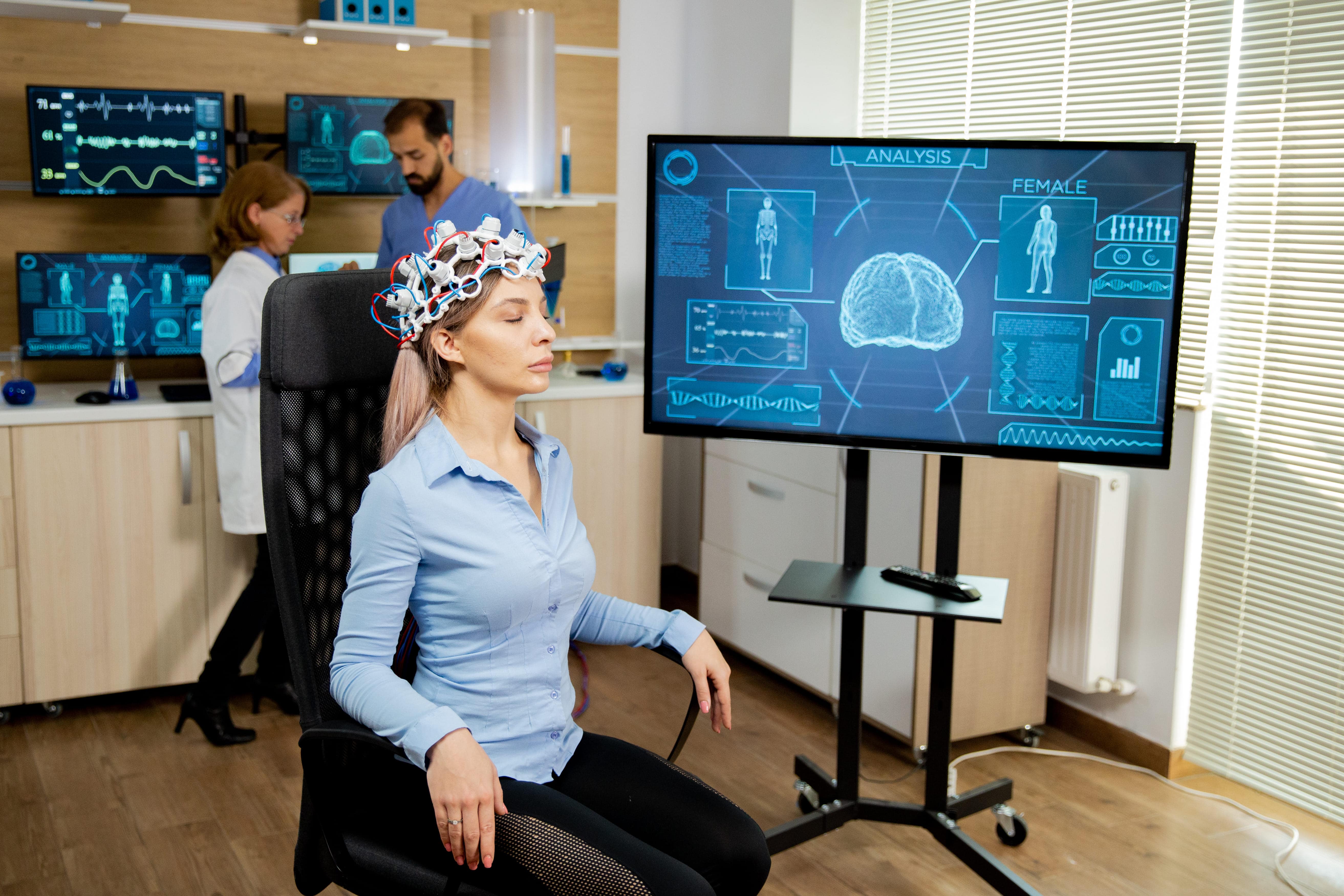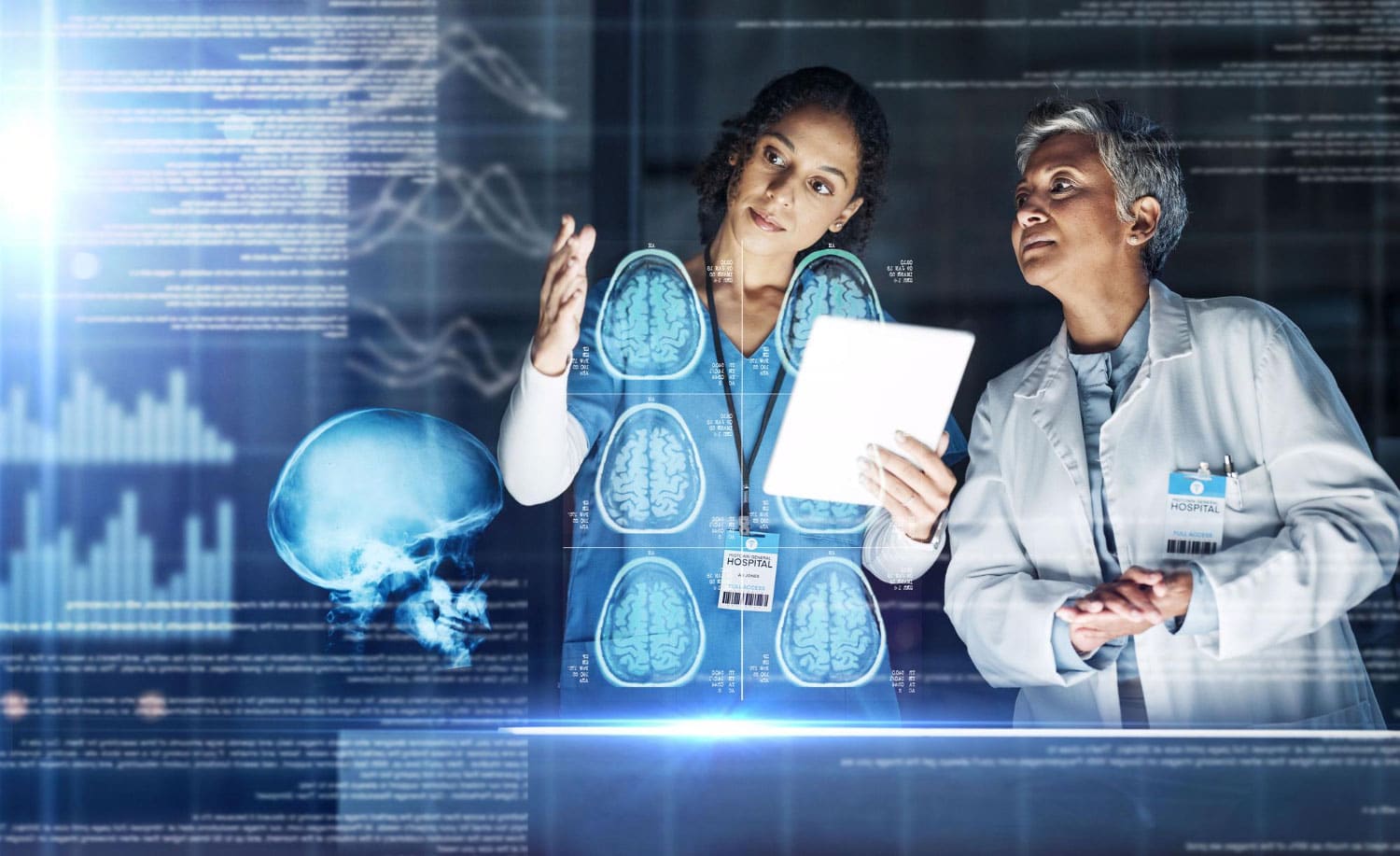The Rise of Artificial Intelligence in Mental Health: Transforming Care for the Future

The field of mental health is undergoing a profound transformation, with Artificial Intelligence (AI) emerging as a driving force behind this change. As technological advancements accelerate, AI is increasingly playing a pivotal role in how mental health conditions are diagnosed, treated, and managed. The global rise in mental health disorders—fueled by the COVID-19 pandemic, social isolation, and the growing complexities of modern life—has heightened the need for accessible, effective, and scalable mental health solutions. In response, AI is helping to meet this demand by introducing innovative tools and platforms that can support both clinicians and patients.
AI presents a new frontier of possibilities in mental health care. It bridges the gap between providers and patients, offers real-time interventions, enhances diagnostic accuracy, and promotes inclusivity in care delivery. From predictive analytics to AI-powered chatbots and personalized treatment recommendations, technology is reshaping mental health services across both clinical and non-clinical settings. While the integration of AI is still evolving, its current applications demonstrate tremendous potential to transform traditional care models and serve as a powerful ally in addressing the global mental health crisis.

AI in Mental Health: Key Applications
1. Early Detection and Diagnosis
One of the most significant contributions of Artificial Intelligence in mental health care lies in early detection and diagnosis. Traditional diagnostic approaches often depend on subjective assessments, patient self-reporting, and the clinician’s interpretation, which can sometimes lead to variability in accuracy. In contrast, AI leverages large datasets and advanced machine learning algorithms to identify subtle patterns that might be overlooked by human practitioners.
A prime example is Natural Language Processing (NLP), a specialized branch of AI capable of analyzing speech patterns, tone, and word choice. NLP can detect linguistic markers associated with mental health conditions such as depression, anxiety, or psychosis. Research indicates that specific changes in language use may signal suicidal ideation or the early onset of mania in individuals with bipolar disorder. By identifying these changes in real time, AI systems can flag potential concerns early, enabling clinicians to intervene proactively and potentially prevent a crisis.
2. Virtual Therapists and Chatbots
AI-powered chatbots and virtual therapists are rapidly emerging as valuable digital tools for mental health support. These platforms utilize conversational AI combined with evidence-based therapeutic techniques, such as Cognitive Behavioral Therapy (CBT), to engage users in meaningful, real-time interactions. By simulating therapeutic conversations, these tools offer a safe space for individuals to express their emotions and receive immediate feedback.
Popular apps like Woebot, Wysa, and Replika provide users with 24/7 access to mental health support, significantly improving accessibility—especially for those in remote or underserved communities. These digital companions help reduce stigma, foster self-awareness, and offer practical coping strategies for managing stress, anxiety, and depression. However, it’s important to recognize their limitations. While these tools are effective for short-term support and self-guided care, they are not substitutes for licensed mental health professionals. Instead, they function best as supplemental resources that encourage users to pursue deeper, personalized care when needed.

3. Predictive Analytics for Relapse Prevention
Predictive analytics powered by Artificial Intelligence is poised to revolutionize how mental health professionals anticipate and prevent crises. By leveraging data from electronic health records (EHRs), wearable health devices, and patient-reported outcomes, AI can uncover patterns and risk factors that signal an impending relapse or deterioration in mental health. This is particularly impactful in managing chronic psychiatric conditions such as schizophrenia, substance use disorder, and major depressive disorder—where early warning signs are often subtle and easily overlooked.
With these predictive insights, providers can take a proactive approach to care. They can fine-tune medication regimens, schedule timely follow-up appointments, or initiate preventive therapy before a patient reaches a crisis point. This not only improves patient outcomes but also reduces emergency interventions, hospitalizations, and overall healthcare costs. In this way, AI transforms mental health care from reactive to preventative—empowering clinicians to act with foresight rather than hindsight.
4. Personalized Treatment Plans
Mental health treatment is inherently personal—what proves effective for one individual may not work for another. Artificial Intelligence is playing a transformative role in addressing this challenge by enabling personalized mental health care. By analyzing thousands of data points, including genetic markers, treatment history, environmental factors, and lifestyle habits, AI can generate tailored recommendations that significantly improve treatment outcomes.
One of the most promising areas is the integration of pharmacogenomics with AI. This approach allows clinicians to predict how a patient is likely to respond to specific antidepressants, antipsychotics, or mood stabilizers based on their genetic profile. By minimizing the traditional trial-and-error process, this precision psychiatry model not only enhances the efficacy of treatment but also boosts medication adherence, reduces side effects, and shortens the path to recovery. Ultimately, AI empowers clinicians to deliver the right treatment, to the right patient, at the right time.
Clinical, Ethical, and Technological Considerations
Data Privacy and Consent
AI systems require large datasets to function effectively. These often include sensitive health information, making data privacy and patient consent paramount. Ensuring compliance with HIPAA and GDPR regulations is critical to ethical AI use.
Bias and Fairness
AI algorithms can inherit biases from the data they are trained on. If datasets lack diversity, the outcomes may be less accurate for minority populations. Developers and clinicians must be vigilant about auditing for bias and improving dataset inclusivity.
Clinical Accountability
AI is a tool—not a replacement for professional judgment. Mental health professionals remain accountable for clinical decisions and must understand how AI-generated insights were derived.

AI Empowers Clinicians—It Doesn’t Replace Them
A common misconception surrounding Artificial Intelligence in healthcare is the fear that it will replace human clinicians. In reality, AI is not a substitute—but a powerful enhancement to clinical practice. Rather than diminishing the role of mental health professionals, AI supports them by automating routine administrative tasks, improving diagnostic accuracy, and freeing up time to strengthen the therapeutic relationship with patients.
For instance, AI-assisted transcription tools streamline documentation by converting spoken conversations into organized clinical notes, reducing the burden of manual charting. Sentiment analysis tools can monitor emotional tone and track subtle psychological shifts over time, offering deeper insights into a patient’s mental state. These innovations not only make clinical workflows more efficient but also empower practitioners to deliver more attentive, personalized care. In this evolving landscape, AI serves as a collaborative partner—amplifying the clinician's role rather than replacing it.
The Future of AI in Mental Health
Looking forward, AI will be further integrated into the mental health ecosystem. Some trends to watch include:
- Telepsychiatry + AI
The rise of virtual consultations has opened new avenues for integrating AI into real-time psychiatric care. During telepsychiatry sessions, AI tools can analyze facial expressions, vocal tone, and speech cadence to detect emotional shifts and psychological stress. This emotion recognition and voice pattern analysis provide clinicians with subtle, data-driven insights that might otherwise be missed in a standard video call—enhancing diagnostic accuracy and patient engagement. - Wearable Integration
Smartwatches and fitness trackers are no longer just about counting steps—they’re evolving into tools for mental health monitoring. These devices continuously collect physiological data such as heart rate variability, sleep patterns, and activity levels. When fed into AI-powered predictive models, this information can help identify early signs of mood disorders like depression, anxiety, or bipolar disorder. Wearable integration is transforming passive health tracking into proactive, personalized care. - Digital Phenotyping
Digital phenotyping involves the continuous collection of behavioral data from smartphones to develop digital biomarkers of mental health. AI systems analyze variables such as texting frequency, screen time, location patterns, and social media interactions to infer mood, cognitive function, and even suicidal risk. This approach allows for non-invasive, real-time mental health surveillance, offering clinicians new tools for early intervention and ongoing care.
As AI matures, we may see systems capable of not just identifying but preventing mental illness before it takes root.
Conclusion: Embracing a Smart Mental Health Ecosystem
Artificial Intelligence is fundamentally transforming the landscape of mental health care, offering scalable, data-driven, and personalized solutions to an industry long burdened by provider shortages, accessibility gaps, and persistent stigma. While valid concerns remain particularly regarding ethical use, data privacy, and equitable access the potential benefits are undeniable. From early detection to precision psychiatry, AI is reshaping how we understand, diagnose, and treat mental health conditions.
Mental health professionals who choose to embrace AI aren’t just enhancing their clinical effectiveness they’re actively co-creating the future of mental health care. As we step into this intelligent era of psychiatry, ongoing collaboration among clinicians, developers, policymakers, and patients will be essential to ensure AI technologies are used ethically, inclusively, and effectively. Together, we can unlock a new standard of compassionate, proactive, and technology-empowered care.
FAQs
- Can AI replace human therapists?
No. AI can support and extend mental health services but cannot replace the emotional nuance, empathy, and contextual judgment that human therapists provide. - Is my data safe when using AI-powered mental health apps?
Reputable apps follow strict data protection regulations like HIPAA and GDPR. Always check the app’s privacy policy and security standards. - Are AI-based mental health tools accurate?
Many tools show high accuracy, especially for screening and pattern recognition, but they should complement—not replace—professional evaluation. - How can clinicians get trained in using AI tools?
Workshops, certifications, and CME courses are available to help mental health professionals understand and ethically implement AI in practice. - What are the risks of relying too much on AI?
Risks include algorithmic bias, overdependence on technology, and potential breaches in privacy. Balanced use and human oversight are essential.
Call to Action
Are you a psychiatric nurse practitioner or mental health professional looking to stay ahead of the curve?
Explore our advanced training courses on AI in psychiatry, digital tools in mental health, and future-ready clinical practice at psychnptraining.com. Learn how to ethically integrate AI into your workflow and transform the way you deliver care.


